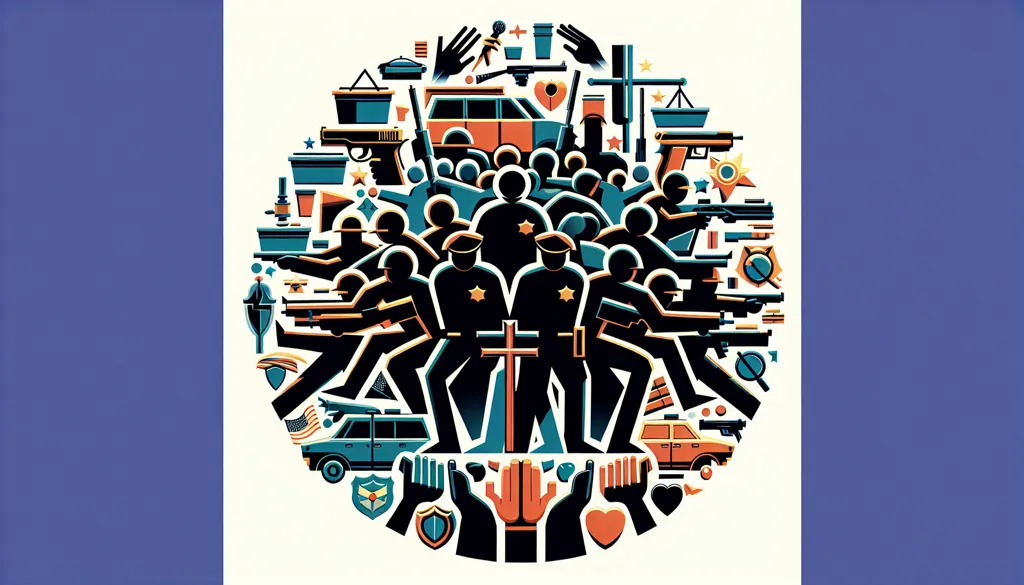Jillian Shriner's Arrest Highlights Complexities in Police Interactions
The recent arrest of Jillian Shriner, an author and the wife of Weezer bassist Scott Shriner, has sparked widespread attention and raised questions about the dynamics of police encounters and the justice system. This incident unfolded in the East LA neighborhood of Eagle Rock when police, responding to an unrelated hit-and-run investigation, found themselves in a confrontation with Shriner.
The Incident in Detail
On a seemingly ordinary Tuesday afternoon, officers were tracking suspects connected to a hit-and-run case. While surveying the area, they noticed a woman in a neighboring residence, later identified as Jillian Shriner, allegedly armed with a handgun. According to the LAPD's official release, officers commanded her to drop the weapon multiple times. However, she allegedly refused and pointed the gun at the officers, prompting them to open fire.
Shriner sustained a gunshot wound but managed to retreat into her home before eventually surrendering to the police. She was taken to a local hospital for treatment of non-life-threatening injuries. The police recovered a 9-millimeter firearm from the scene, but no officers or bystanders were injured during the confrontation.
Legal Proceedings and Public Reactions
Shriner was subsequently arrested on suspicion of attempted murder, and her bail was set at $1 million. As the legal process continues, public discourse has centered around the appropriateness of the police response and the complexities of self-defense laws. The LAPD has yet to clarify why Shriner was armed, especially as she had no apparent link to the hit-and-run case that brought police to her neighborhood.
This incident underscores the broader societal debate regarding gun ownership, the rights of individuals to protect their property, and the protocols police follow in potentially life-threatening situations. As a mother, I often think about the safety of my family and how I would react in a similar scenario, balancing the instinct to protect with the need to avoid escalation.
Implications for Law Enforcement and Community Relations
The Jillian Shriner case is a reminder of the delicate balance law enforcement must maintain between ensuring public safety and respecting individual rights. It raises important questions about how police are trained to handle situations involving armed civilians and the transparency of subsequent investigations.
Moreover, this incident highlights the necessity for clear communication and de-escalation tactics. Communities across the United States, including those in my own Midwestern suburb, are increasingly advocating for reforms in policing practices to build trust and cooperation between residents and law enforcement.
Personal and Professional Impact
For Jillian Shriner, this incident not only impacts her personal life but also her professional endeavors as an author. Her husband, Scott Shriner, continues to perform with Weezer, who are scheduled to appear at the Coachella Festival. The juxtaposition of her legal troubles and his professional commitments brings to light the challenges families face when personal crises intersect with public lives.
As a working mother myself, I can empathize with the strain of balancing family responsibilities and professional obligations, especially when unforeseen events disrupt the norm. It is crucial for individuals in the public eye to have robust support systems to navigate these challenges effectively.
Conclusion
The arrest of Jillian Shriner serves as a poignant example of the multifaceted nature of law enforcement interactions and the subsequent legal implications. While the facts of the case continue to unfold, it is essential for society to engage in thoughtful discussion about the roles of police, the rights of individuals, and the importance of community safety.
As a mother and a journalist, I believe in the power of informed dialogue to foster understanding and progress. This incident is a reminder that behind every headline is a complex story involving real people and real communities, necessitating balanced and empathetic analysis.

